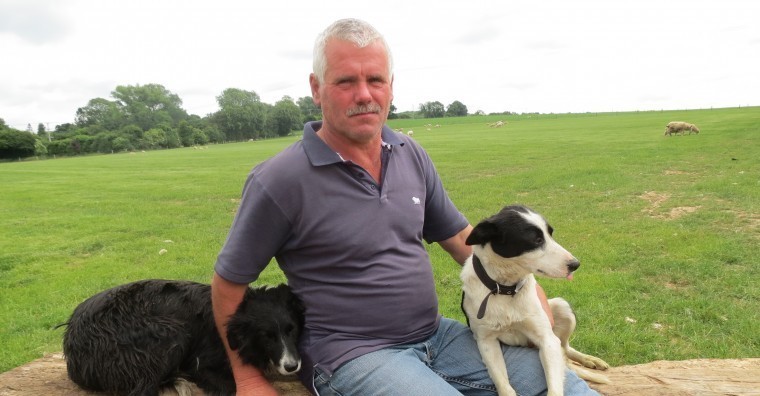Most of the time, Gordon Wyeth has a crew of just three or four people to look after his massive flock of 10,000 sheep.
“We do it just by being organised and everyone knowing their routine,” said Mr Wyeth, who runs a family partnership called Hampshire Sheep and Farming. “I have others who help with physical checking every day, but the core work is done by two or three people.” There are some extras – perhaps two or three – at lambing time.
Two of the core team are self employed on Maple Farm, and two are self employed. Matt Abraham and Nathan Jones are self employed, and Mr Wyeth and his son Jack work full time on the farm. On the administrative side of the business are Mr Wyeth’s wife Glenys and his mother Jennifer. “It’s a family affair, really.” The partners are Mr Wyeth, his wife Glenys and mother Jennifer.
Their sheep are spread over a vast area. There are some near Chichester in West Sussex, others at Ripley in Surrey and more near Newbury in Hampshire. In total, some 3,000 acres are involved.
“With the sheep we all know our programme, the list of jobs and when everything has to be done. We have to stick to that religiously. If anything falls out of sync, you are just snookered.”
The bill for fuel and vehicles covering such large distances is huge. “I bought three new pick ups two years ago and I have just had to change one because it had done 90,000. It costs a lot of money but I can’t afford to buy ground.”
Maple Farm is the base for the operation, and the Wyeths own 150 acres here. Another 70 more acres is owned in blocks, and everything else is rented in various ways from grazing licences to a 15 year farm business tenancy on West Dean Estate near Chichester and another 450 acres plus a big barn rented from Rocco Forte at Ripley.
The sheep are New Zealand Romneys, which Mr Wyeth says he fell into, really. “We had a bad time with the foot and mouth in 2001. We lost 700 lambs because of it.” Then three years later, the business was hit by Border disease, which is a form of infectious abortion in sheep. At the time, a scan of about 2,000 ewes showed that 800 were empty. “I decided I could not pass them on to anyone else, because some were carriers – so we killed everything.” The Wyeths were forced to downsize and start again.
They began with 1,100 sheep and eight New Zealand Romney lambs bought from Richard Chandler in Hereford. Thereafter, they bought rams from Chris and Caroline Hodgkins based in Washington, West Sussex. They work with Derek Daniell, a New Zealand based breeder of Romneys who exports rams to the UK. “We are now the biggest closed flock of New Zealand Romneys in the UK, which is a good marketing tool for selling breeding stock.” Being a closed flock means that Gordon Wyeth knows exactly what he is introducing to his flock. “I have certain bugs which may be kicking around in my flock. But I only buy from one source, and they are carefully screened for everything – so I am not introducing anything else into the sheep. That means I don’t have to vaccinate for abortion because I don’t have a problem with that at all.”
All the lambing is done outside. “Once you’ve done it, it makes so much sense and I wouldn’t go back to lambing indoors,” Mr Wyeth said. “The stock are that much healthier. The genetics do help, but you still have to know stockmanship.”
One of the main criteria for looking after Romneys or any sheep is scanning to show how many lambs there will be. The Wyeth’s sheep are split and fed accordingly so at the point of giving birth the lambs are the right size. The singles are not given much so that they have a nice sized lamb; twins are fed cautiously; and the triplets have a lot of hands-on care and are kept close to the barn. “We use the barns for the triplets and the quads, and we don’t foster any lambs. My wife has a system for looking after the orphans.” The twins are within about 10 miles of Maple Farm, and there are between 3,000 and 4,000 of them; and the singles are further away because they have less attention.
As a rule of thumb, there is one person per 1,000 sheep, and they may have four or five different blocks to look at twice a day.




